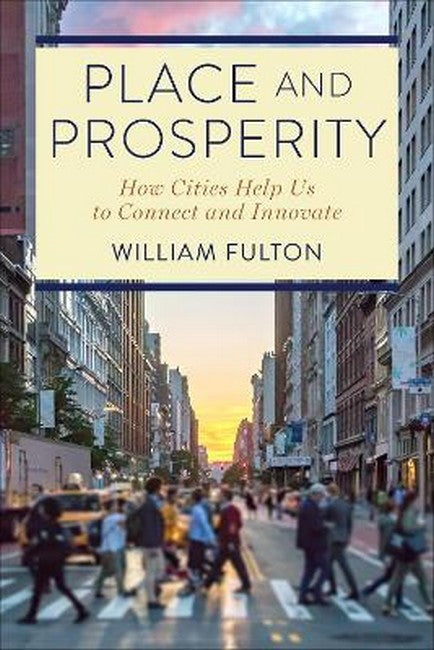Place and Prosperity
Place and Prosperity
SKU:9781642832501
Share
There are few more powerful questions than, "Where are you from" or "Where do you live?" People feel intensely connected to cities as places and to other people who feel that same connection. In order to understand place - and understand human settlements generally - it is important to understand that places are not created by accident. They are created in order to further a political or economic agenda. Better cities emerge when the people who shape them think more broadly and consciously about the places they are creating. In Place and Prosperity: How Cities Help Us to Connect and Innovate, urban planning expert William Fulton takes an engaging look at the process by which these decisions about places are made, how cities are engines of prosperity, and how place and prosperity are deeply intertwined. Fulton has been writing about cities over his forty-year career that includes working as a journalist, professor, mayor, planning director, and the director of an urban think tank in one of America's great cities. Place and Prosperity is a curated collection of his writings with new and updated selections and framing material. Though the essays in Place and Prosperity are in some ways personal, drawing on Fulton's experience in learning and writing about cities, their primary purpose is to show how these two ideas - place and prosperity - lie at the heart of what a city is and, by extension, what our society is all about. Fulton shows how, over time, a successful place creates enduring economic assets that don't go away and lay the groundwork for prosperity in the future. But for urbanism to succeed, all of us have to participate in making cities great places for everybody. Because cities, imposing though they may be as physical environments, don't work without us. Cities are resilient. They've been buffeted over the decades by White flight, decay, urban renewal, unequal investment, increasingly extreme weather events, and now the worst pandemic in a century, and they're still going strong. Fulton shows that at their best, cities not only inspire and uplift us, but they make our daily life more convenient, more fulfilling - and more prosperous.
About the Author
About the Author
William Fulton is the author or co-author of seven books, including The Regional City with Peter Calthorpe (Island Press) and The Reluctant Metropolis: The Politics of Urban Growth in Los Angeles, which was an L.A. Times best-seller and is still in print (Johns Hopkins University Press) after more than 20 years. Over the past four decades, he has established himself as one of America's major thought leaders on cities and urban affairs, having written hundreds of articles and given dozens of keynote speeches around the country. Currently the Director of the Kinder Institute for Urban Research at Rice University, he is a former Mayor of Ventura, California, and Director of Planning and Economic Development for the City of San Diego.
Couldn't load pickup availability


